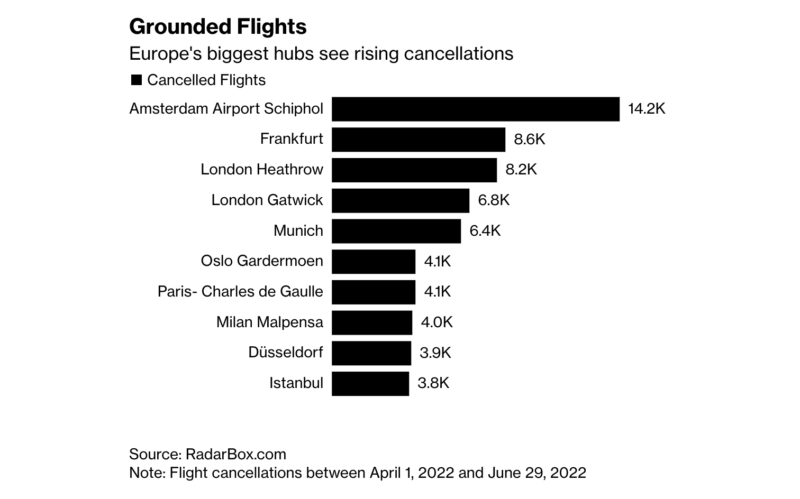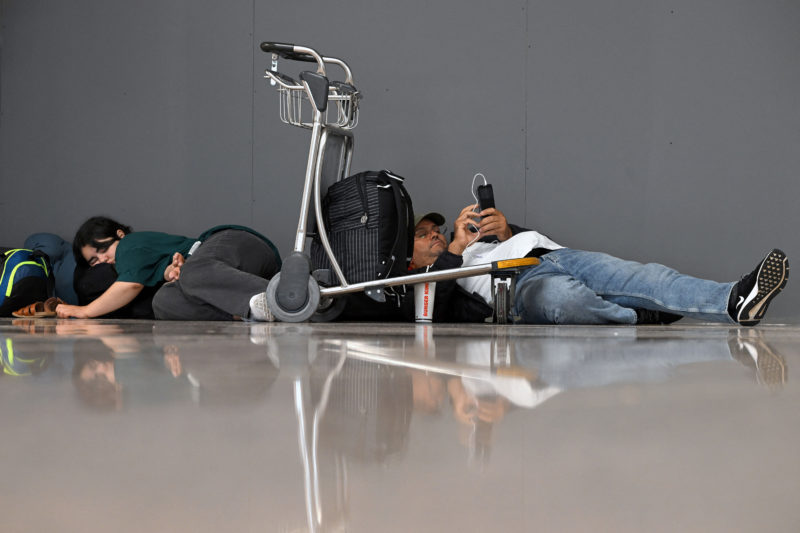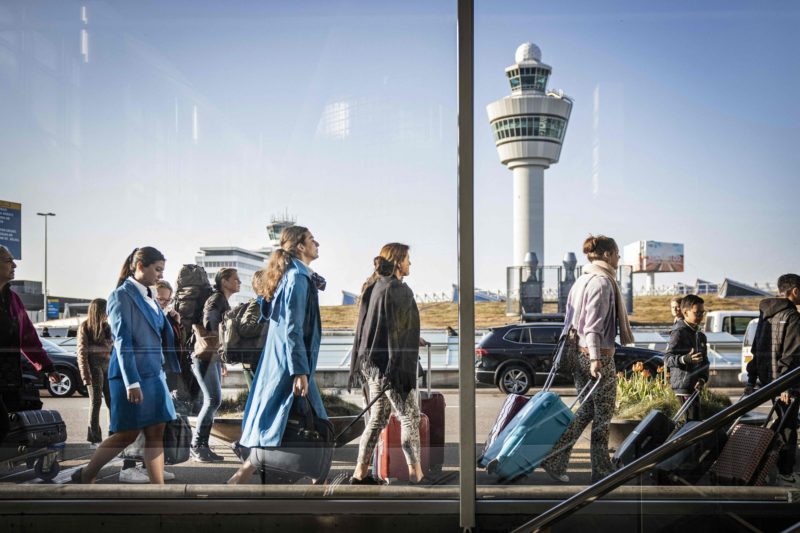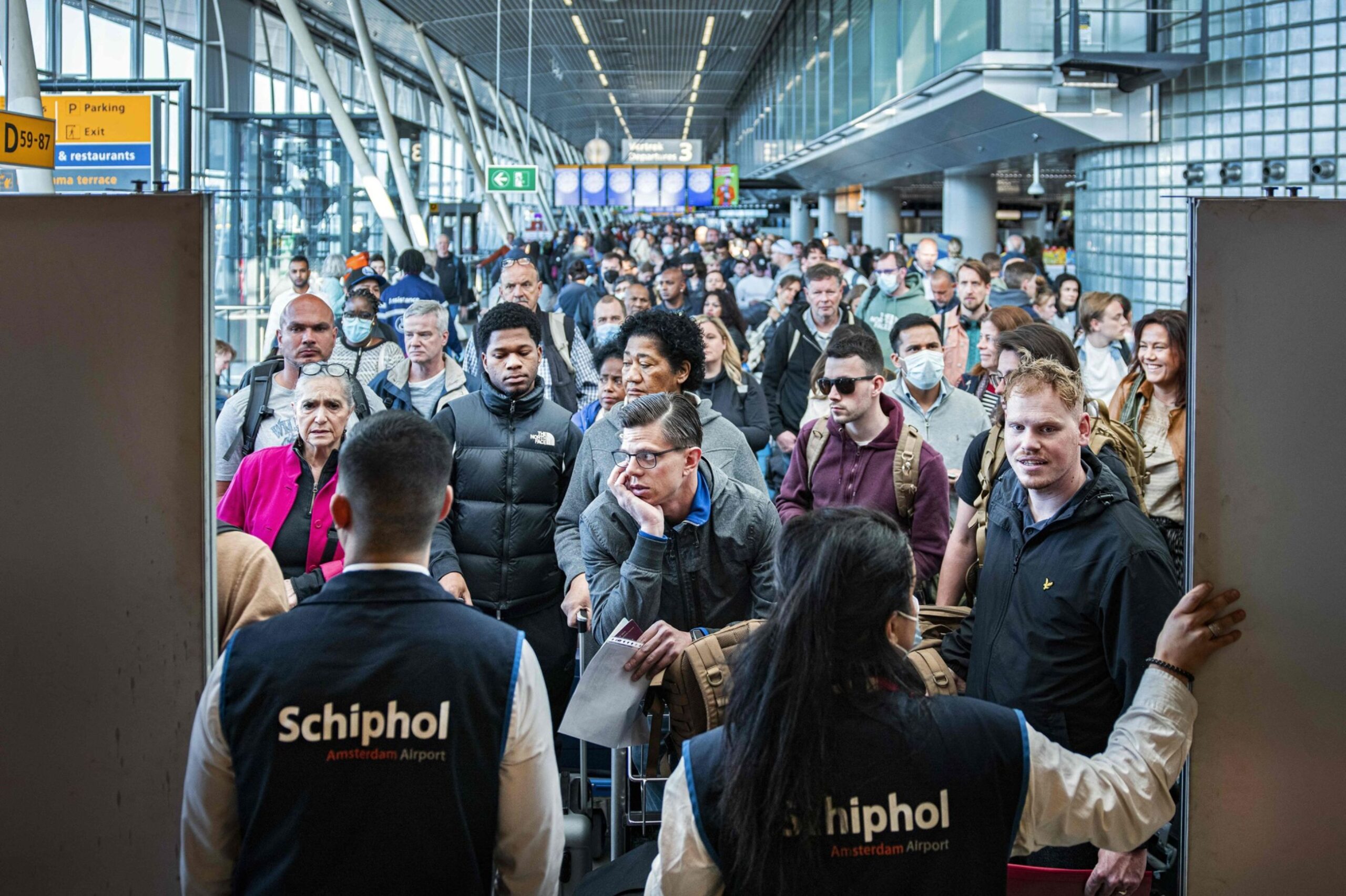I recently had 2 delays out of 3 flights taken on domestic U.S. trips. With a shortage of staff at airports and a sharp rebound in demand for air travel, I think no traveler can escape from flight disruption.
Let's take a look at some stats on airport delays and airline cancellations:
Airports with most cancellations in Europe
- Amsterdam Schiphol Airport: 14,200 flights
- Frankfurt Airport: 8,600 flights
- London Heathrow: 8,200 flights
- London Gatwick: 6,800 flights
- Munich Airport: 6,400 flights
*Flight cancellations between 1st April and 29th June

UK Flight Cancellations
- Air France/KLM: 2,135 scheduled departures, 113 cancellations (5.3%)
- EasyJet: 15,601 scheduled departures, 738 cancellations (4.7%)
- British Airways: 11,590 scheduled departures, 419 cancellations (3.6%)
- Lufthansa: 1,080 scheduled departures, 38 cancellations (3.5%)
- Ryanair: 12,105 scheduled departures, 32 cancellations (0.3%)
Airline Delay and Cancellations in the US
US Flights Stats June 8-July 7:
- Scheduled Flights: 782,267
- Cancelled Flights: 19,640 (2.5%)
- Delayed Flights: 179,468 (22.9%)
Cancellation and delay stats for the U.S. airlines (mainline flights)
- American Airlines: 93,040 scheduled flights, 4,358 cancelled (4.68%), 26,105 delayed (28%)
- Delta Air Lines: 86,689 scheduled flights, 2,678 cancelled (3%), 17,508 delayed (20%)
- United Airlines: 68,794 scheduled flights, 1,863 cancelled (2.7%), 15,404 delayed (22%)
- Southwest Airlines: 115,833 scheduled flights, 1,058 cancelled (0.91%), 33,615 delayed (29%)
Video
10 Travel Tips
After 2 years, some travelers have become rusty. I am sharing some useful tips on how to travel these days:
1. Try to fly non-stop without connecting even if it may cost more. Too many domestic and regional flights are canceled last minute which will throw your multi-stop itinerary out.
Consider other modes of transport for short-distance travel as the queue at the airport security is taking much longer.
Book on morning flights. Try to avoid evening flights as chances of your flight may be more delayed due to roll-on delays.
If you have the flexibility, avoid weekend travel. Consider travel on Tuesday and Wednesday which is less crowded.
2. Download the app of your airline and make yourself familiar with all the features. In case of delay or re-route, try to look up the airline app for the most updated information. You may be able to solve issues without calling or queueing up at the customer desk.
3. Monitor the airport website to see the average security checkpoint time and use flight tracking app such as Radarbox, FlightAware or FlightRadar24 to see any flight delays at the airport.
4. Check-in online before you go to the airport. Keep monitoring your flight ahead of time for plan B.
5. Try to pack light, bring carry-on bags only as the chance of baggage mishandling is high.
6. Have a fully charged phone with you on the day of travel. Plus a portable charger and adapter handy.

7. If you must check bags, place important personal things in your carry-on luggage. In case your luggage gets lost or delayed have your toiletries and a comfy outfit ready to survive temporarily.
Check your bags ahead of time. Don't check in your luggage very close to departure time (i.e. 60 minutes). There are high chances that your luggage won't make it.
8. Take a picture of your checked suitcase. This may make it easier for the lost and found report.
9. Get travel insurance, documenting the delays and disruptions. In case of missing baggage, make sure you take a copy of the claim form.
10. Manage your travel expectations, and be prepared for extra long queues and unexpected delays. Be patient in everything you do. Be prepared and know your rights!

Your Rights For Compensation
The Montreal Convention is the oldest treaty created to protect passengers’ rights and it applies to most international flights. In case of a physical injury resulting from a flight accident, for example, airlines are liable for up to EUR 140,000 (to cover medical expenses). Passengers are eligible for up to EUR 1,400 for damages suffered as a result of lost or destroyed luggage.
However, it may take a very long time to get airlines to pay up as there are so many cases filed.
In the U.S., if you get bumped from your flight, you are entitled to US flight compensation at least equal to 200% of your one-way fare.
The European Regulation EC261 rule is an extensive bit of legislation that requires airlines to compensate passengers in the event of:
- Denied boarding
- Flight cancellation
- Long delay of flights (three or more hours)
Under EC261 you may be eligible for compensation reaching up to EUR 600 if your flight is delayed by more than 3 hours or gets canceled. AirHelp helps air passengers around the world secure compensation for delayed, canceled, or overbooked flights.

How to File a Claim?
AirHelp can help you if you have a flight disruption within the EU (on any airline), leaving the EU (on any airline) or arriving into EU (on EU airline).
AirHelp can help you to determine whether you’re eligible for compensation and claims through the easy 1-2-3 steps on their website.
Video
Cover Image: via AP




